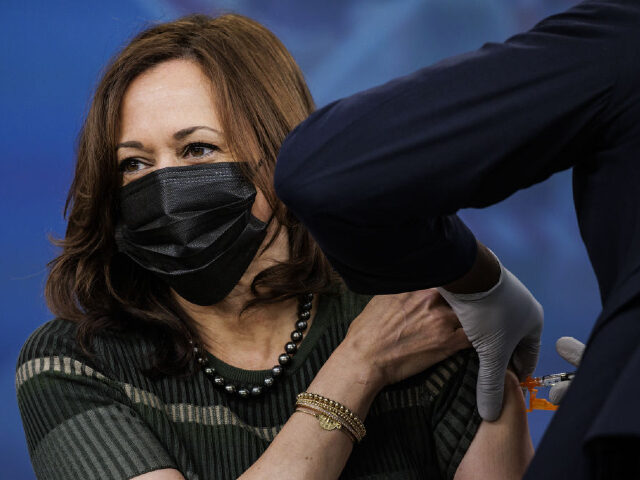Vice President Kamala Harris is seemingly contradicting public health officials this week, asserting that “most” people will only need a coronavirus shot once a year, despite the fact that they are pushing the updated shot on individuals — even those who got their last jab as recently as two months ago.
“One shot, once a year—that’s all most people will need to stay protected from COVID year-long,” Harris said this week, urging people to make a plan:
However, one day later, Health Secretary Xavier Becerra offered a different message, urging people vaccinated as recently as two months ago to make plans to get another jab.
“An updated COVID vaccine can help protect you from the worst outcomes of COVID. If it’s been over 2 months since your last dose, make a plan to get one now,” he wrote:
Indeed, over the past two years, public health officials have no only encouraged individuals to get the jab but boosted as well. President Biden, for example, has been jabbed at least four times in a two year span — far more than Harris’s plea for a “once a year” shot. Yet, he went on to contract the virus.
The pleas follow a survey from The Economist/YouGov, which found that individuals who are already vaccinated are not necessarily eager to get the new booster supposedly “tailored to newer specific variants.”
As Breitbart News reported:
The survey found most identifying themselves as fully vaccinated — 23 percent vaccinated without a booster shot and 42 percent vaccinated with at least one booster shot thus far. Nearly a quarter, 23 percent, said they have not received any coronavirus shots, and six percent refused to reveal their status.
The survey found that most have heard at least “a little” about the booster shots “tailored to newer specific variants of COVID-19,” but when asked if they want it, vaccinated individuals did not seem overly thrilled.
Just 15 percent said they “already got it,” followed by 25 percent who said “yes,” they want that jab. Nearly four in ten, 38 percent, said “no,” they do not want that jab, followed by 23 percent who remain unsure.
In August, the U.S. Food and Drug Administration (FDA) approved another coronavirus booster shot, although it was a move that has remained under scrutiny, as the approval came without human clinical data.
“In the U.S., the FDA asked the manufacturers to make” an updated vaccine “knowing that there was no clinical data,” Moderna CEO Stéphane Bancel admitted to European Parliament earlier this year.
“The FDA was comfortable doing that, because there was a test running technique around the ancestral vaccine booster. It was also tested in the clinic around the beta variants booster. … So we pulled up clinical data,” he said. “They wanted the vaccine available and it’s already available in pharmacy as we speak in the U.S.”
Meanwhile, states such as Florida have taken bold action in advising against the vaccine for healthy children. And more recently, Florida opted to advise against the mRNA vaccine for men under the age of 40 following an analysis showing an 84 percent increase in “the relative incidence of cardiac-related death among males 18-39 years old within 28 days following mRNA vaccination”:

COMMENTS
Please let us know if you're having issues with commenting.